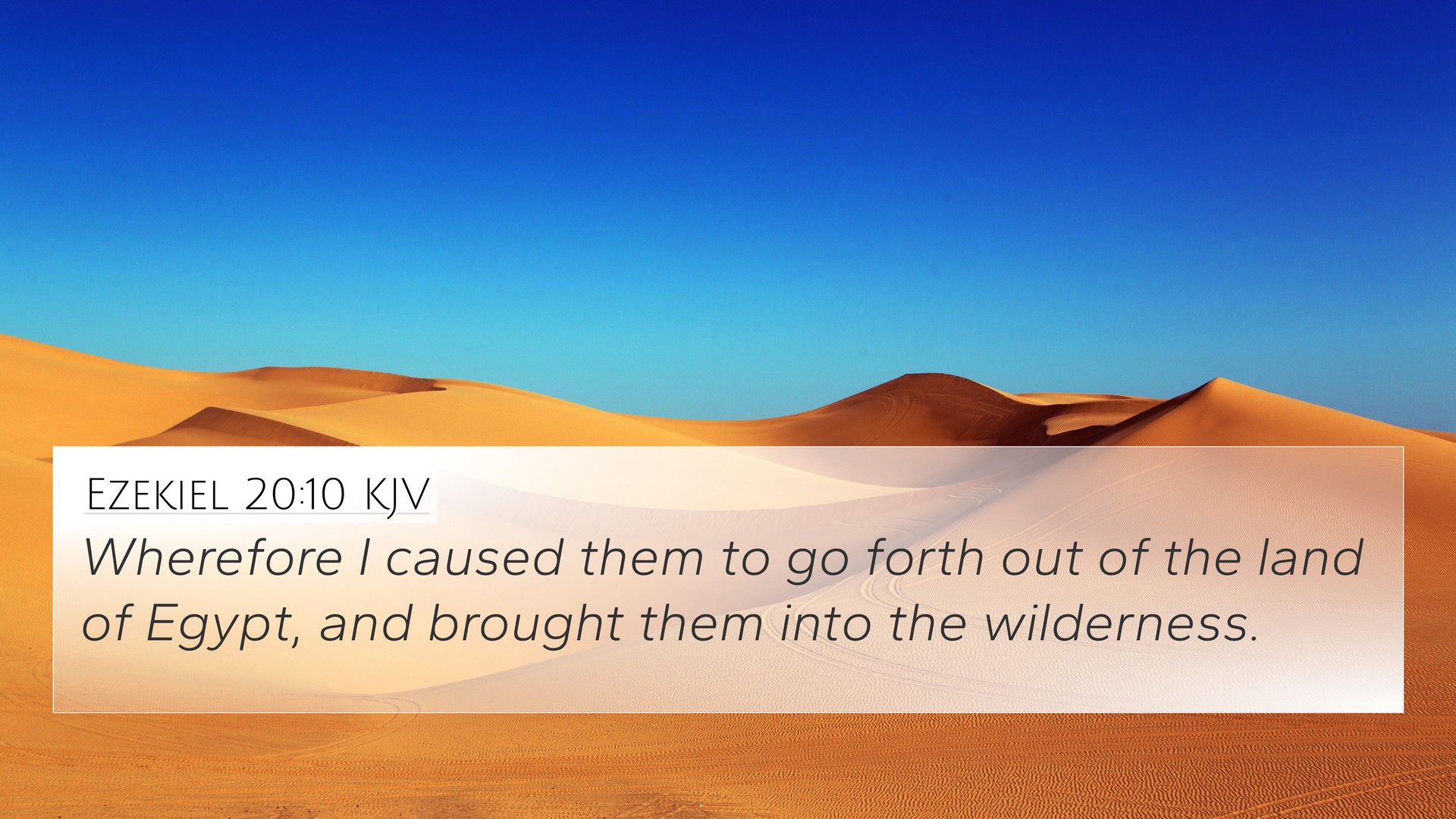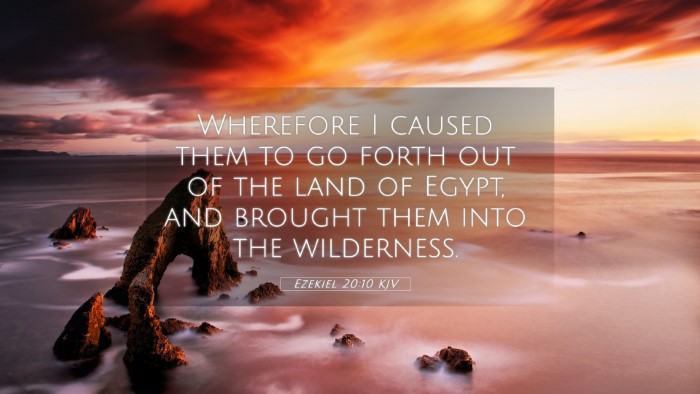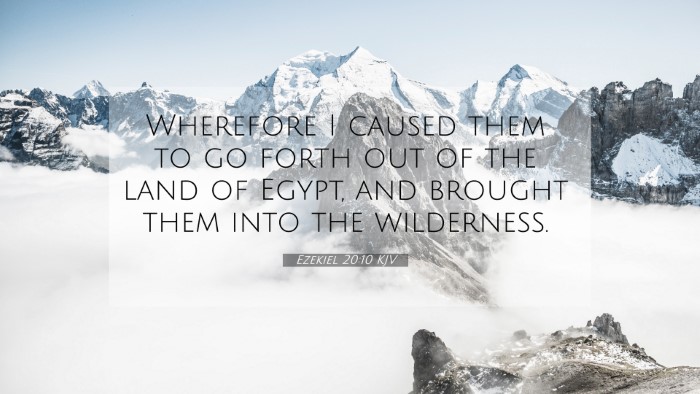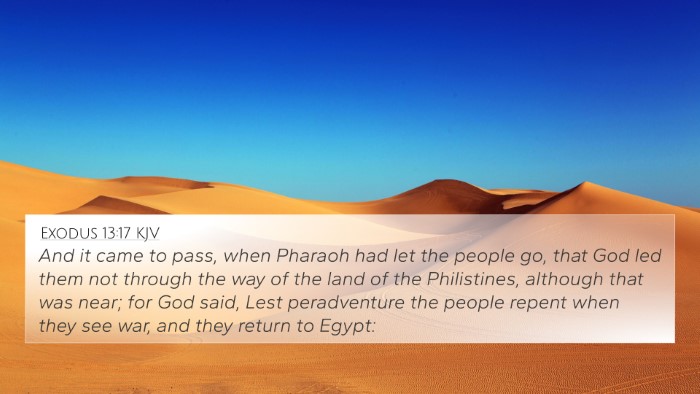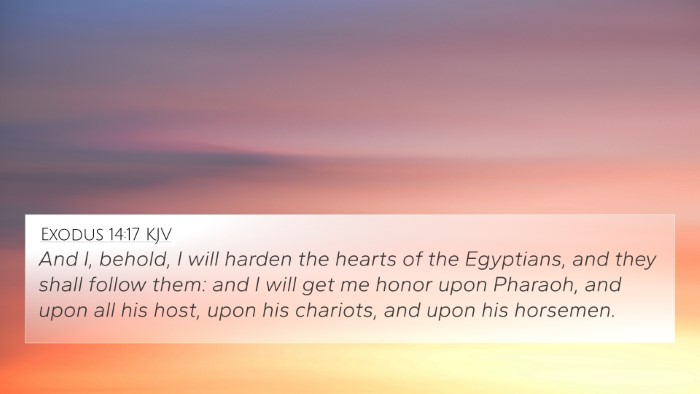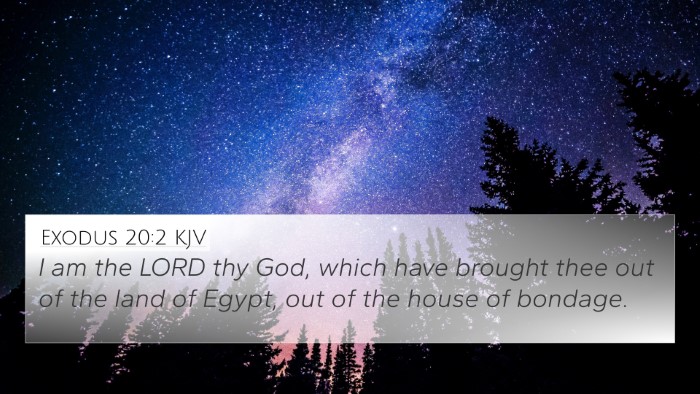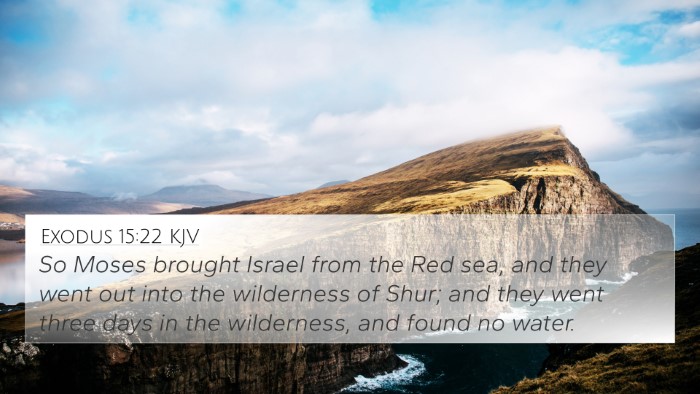Ezekiel 20:10 - Understanding the Verse
Ezekiel 20:10 states: "Wherefore I caused them to go forth out of the land of Egypt, and brought them into the wilderness." This verse captures a pivotal moment in the history of Israel, focusing on God's deliverance of His people from bondage in Egypt and their subsequent journey in the wilderness. The significance of this event is rooted in themes of liberation, guidance, and covenant fidelity.
Contextual Background
This verse is set within a broader narrative where Ezekiel addresses the Israelites, reminding them of God’s past acts of salvation and the ongoing call to faithfulness. Historical context is vital in understanding the implications of God's actions and the people's responses.
Commentary Insights
Several public domain commentaries provide rich insights into the meaning of Ezekiel 20:10:
-
Matthew Henry:
Henry highlights God's sovereign grace in bringing Israel out of Egypt. He notes that this act was not just a physical liberation but also a spiritual one, as God aimed to form a covenant relationship with His people. The wilderness experience was a period of testing and preparation for entering the Promised Land.
-
Albert Barnes:
Barnes emphasizes the unmerited nature of Israel's deliverance. He critiques the people's subsequent rebellion during their wilderness journey, illustrating a contrast between divine faithfulness and human unfaithfulness. This dialogue provokes the reader to consider their own response to God's deliverance.
-
Adam Clarke:
Clarke provides a detailed exegesis of the wilderness experience, suggesting it was both a trial and a means of demonstrating God's guidance. He reflects on the need for reliance on God, as He provided for their needs during their time in the wilderness, underscoring the theme of divine providence.
Thematic Connections
This verse connects thematically to several other Scriptures, illustrating the overarching narrative of God’s redemptive plan:
- Exodus 3:8: God's promise to bring Israel out of Egypt and into a good and spacious land.
- Deuteronomy 8:2: Remembering the way the Lord led Israel through the wilderness to humble and test them.
- Numbers 14:29: Consequences of disobedience after being delivered from Egypt.
- Jeremiah 2:6: A reminder that Israel did not seek God in the wilderness.
- Hebrews 3:16-19: Reflection on the disbelief of the Israelites during their wilderness journey.
- Romans 8:15: A call to embrace the spirit of adoption rather than fear, echoing the liberation theme.
- 1 Corinthians 10:1-4: Paul uses Israel’s journey as a metaphor for Christian life, emphasizing spiritual nourishment.
Cross-Referencing Insights
In studying Ezekiel 20:10, the following cross-references provide insight into God's faithfulness and the expected response of His people:
- Psalm 105:43-45 - Celebrates God's deliverance and faithful promises to His people.
- Isaiah 43:16-19 - God's ability to create pathways and do new things for His people.
- Matthew 4:1 - Jesus' temptation in the wilderness reflects the spiritual journey akin to Israel’s.
- Luke 22:42 - Jesus' submission to God's will parallels Israel’s struggle in the wilderness.
Conclusion
Ezekiel 20:10 serves as a profound reminder of God's faithfulness in delivering His people. The wilderness experience acts as a critical formative period that informs the identity and mission of Israel. Reflecting on this verse encourages modern believers to contemplate their own journey of faith in light of God’s past actions and continuous guidance.
Tools for Further Study
For those interested in deepening their understanding of cross-referencing biblical texts, consider utilizing:
- Bible concordances for thematic studies.
- Cross-reference guides available in many study Bibles.
- Comprehensive online and offline biblical study resources.
